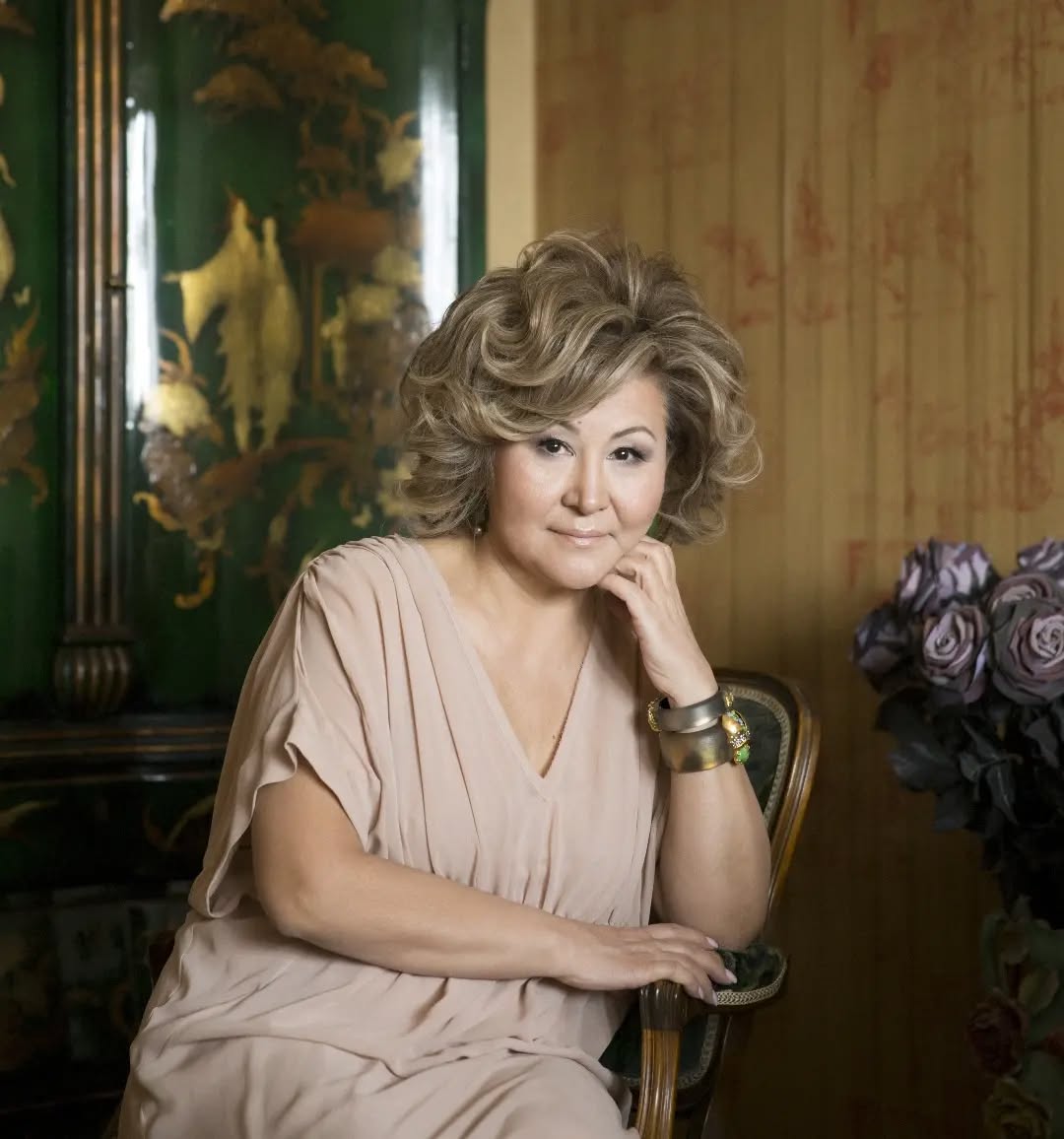
Zhanara Al Ibekova is actively developing the Tommy Lise brand for newborns, which she launched at the height of the pandemic in Europe in 2020. She sells her product in eight countries, including the Czech Republic, Slovakia, Italy, the UAE and Kazakhstan.
Zhanara proudly shows the Instagram account of her brand created for Italians:
"Here's a mom using our swaddling clothes and a pareu on the beach. They love our muslin – customers around the world enthusiastically buy our designer children's accessories. Our team has its own philosophy - we use only floral prints. By this, we mean to say that it’s important to love nature and instill this love in children. The swaddling cloth does not have to be boring pink or blue. It can be styled just like Hermes or D&G scarfs, which will make mothers happy, hence babies as well. Women in different countries understand this. We receive positive reviews from fans of our brand from the Czech Republic or the UAE.
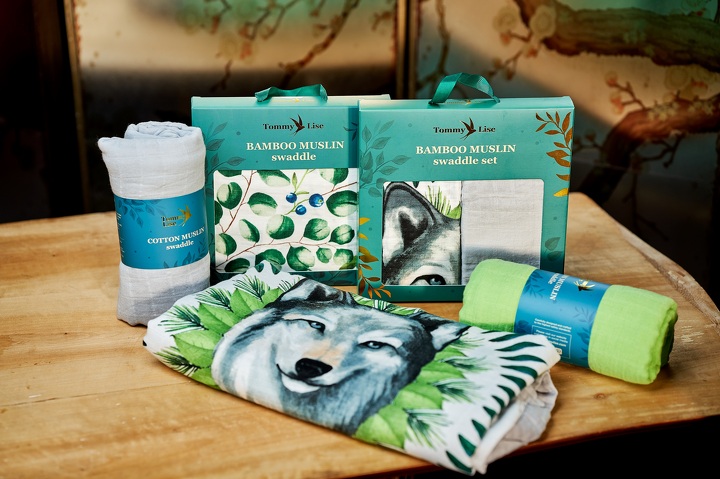
We began the conversation by asking, "Zhanara, how did you create the brand?”
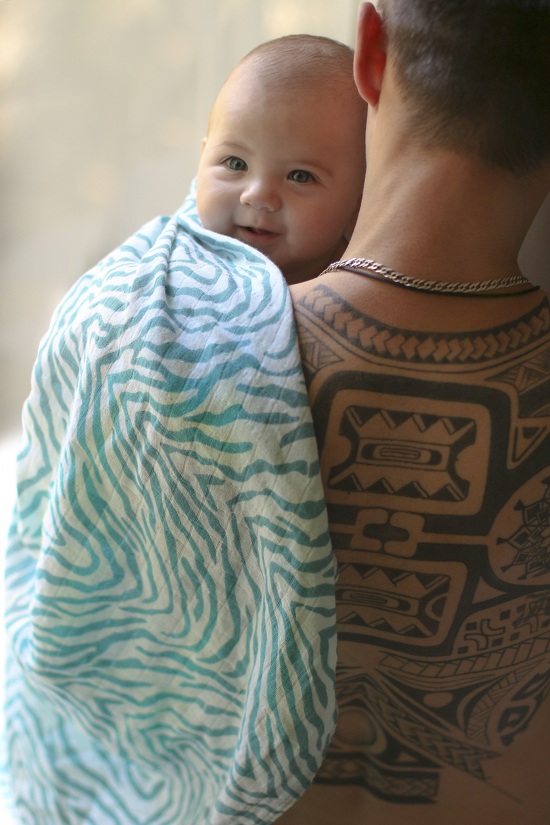
-"We started to create it in Kazakhstan working with specialists from different countries. We had an American copywriter, designers from Italy, Russia and Kazakhstan. Prints for our bamboo tableware were drawn by a Canadian - digital technologies gave us the opportunity to unite specialists from different countries. Our production facilities are in China and Thailand, all products are tested in the laboratory and certified according to EU standards.
We finalized the product a year and a half after the launch: we tested it and wasted a lot of fabric. Initially, we had a wider range, but some products could not have prints. For example, we wanted to make pacifiers with tropical prints, but faced restrictions on printing and colors. It was slowing us down. The brand initially had slightly different products, but then we transformed it and opted for textile.
We do not just produce children goods. It's a designer brand sold in eight countries. Our trick is that we take ordinary casual things and make them designer. A muslin swaddling cloth has never been considered a fashion accessory, but now mothers use it not only for its intended purpose, but also as a scarf or scarf. One time, one of our clients even sewed a summer beach dress from our swaddling clothes.
Do you design clothes as a businesswoman or as a mom?
"I look at all my projects through the lense of my personal experience and personal needs. For example, I created the franchise of the children's clothing brand Du Pareil Au Meme (DPAM) when I had three children and they had nothing to wear. 12 years ago I decided to bring this brand to Kazakhstan, and my children are now 16, 14 and 12 years old. In 2018, I gave birth to my fourth child and I understood that muslin diapers look sad, they lack style and bright colors. I saw similar swaddling cloth in Europe, but I wanted something unique, my own and reflecting the connection with nature. In a word, my children inspired me.
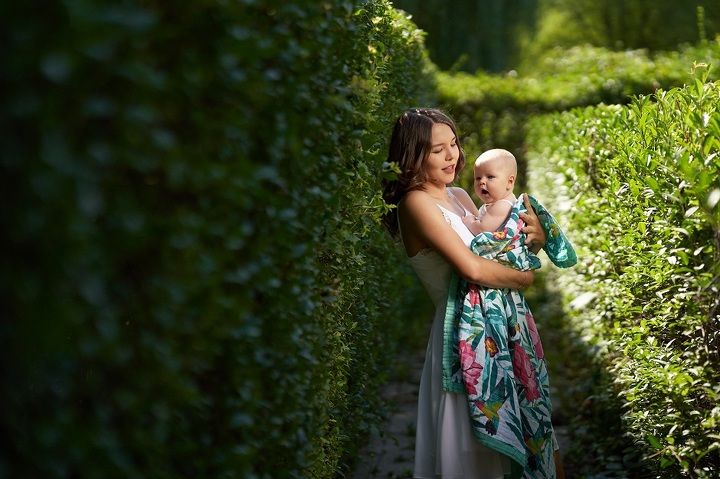
Why did you focus on Europe and not on the CIS countries?
-"I take into account the culture of each country. We created the brand based on a deep understanding of the demand and needs of mothers for children's clothing. In post-Soviet countries, in particular in Kazakhstan, babies up to six months usually do not wear anything fancy. Because it is not customary for us to show babies to strangers. Therefore, in Kazakhstan, the demand for clothes for children under 6 years is much higher than for toddlers. In Europe, the situation looks different: a week after birth, parents take their baby to a cafe and post photos on Instagram. Therefore, we understood that the demand in Europe would be higher.
Second, competition is also higher there, the market is more developed. When we went to Europe, we understood that we were entering a very competitive market, but European mothers are open to experiments and are ready to accept new products. In Kazakhstan, we are just opening up the world of designer accessories for kids to our customers.
Third, the Czech Republic is a logistics hub for the whole of Europe. The country has a favourable taxation regime, simplified company registration, stable economic and banking systems. Despite the high taxes on staff and a large social package, income taxes are quite low. Plus the free movement of goods across the EU and international transportation with a zero VAT rate. All procedures are simplified and allow you to focus on business development, and not on red tape.
In addition, we wanted to have an Old World company, we positioned the brand as European, the company's head office and warehouse are located in Prague. Today, our brand is mostly recognized in the Czech Republic.
You started a business in the midst of a pandemic. Tell us what difficulties you faced in isolation.
-"During the pandemic, we redesigned the business model in three months. Initially, the idea was to sell goods through an international network of distributors. Before the pandemic, we traveled all over the CIS and all of Europe, we had orders and contracts. But at one point all the customers refused us, because the stores were closed. In Europe, entrepreneurs were under tremendous pressure.
We in Kazakhstan are used to all kinds of shocks. The Europeans, on the other hand, were faced with such a severe crisis for the first time, and they were absolutely not ready for it. All companies have decided not to expand the range and halted cooperation with new brands.
At the beginning of the pandemic, we received the first batch of products and began urgently looking for sales channels. We had to sell online in the Czech Republic, Slovakia, and registered on Amazon. We operated literally in Spartan conditions.
In general, the main risk for business in Europe is operating costs. Everything is very expensive here. You don't earn yet, but you already incur large expenses — for the warehouse, accounting, salaries, taxes, insurance. Therefore, we sized down as much as possible. And now, having optimized our business model, we can talk about development, since we no longer spend our own resources. Yes, it was hard. We couldn't simply lay off under-performing staff, we had to pay huge severances. But it is worth noting that the Czech government helped us a lot during the lockdown – they covered our salary costs for employees for six months.
The approach to business and communications is different everywhere. For example, in the UAE, a distributor bought a container by email after receiving samples - we didn't even meet in person And in Europe, you can schedule meetings, hold negotiations, and they can postpone making a decision for several months, they have a different ethic.
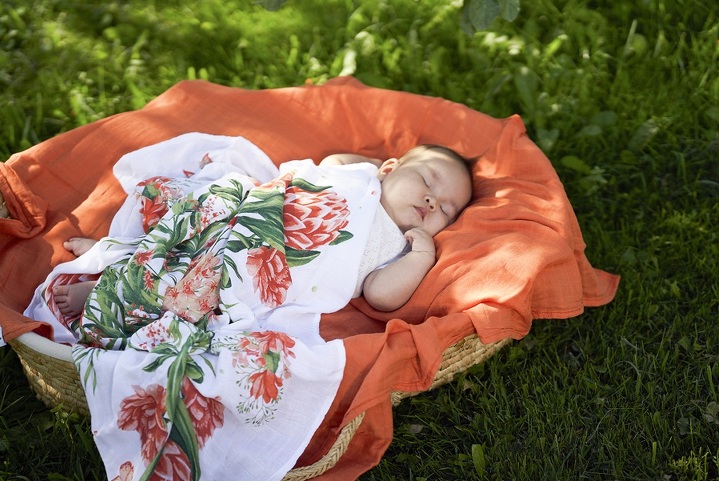
How do you plan to develop your brand further?
-"We do not plan to open retail stores. The main development plan is to broaden the range of products and expand the geography of distribution. We want to be in as many countries as possible in Europe, then in America. We recently launched on Amazon in Germany, France, Italy, Spain and the Netherlands. There are high hopes for promotion on this platform.
During the pandemic, when we saw that it was possible to sell online, we transformed the business in Europe. Having an understanding of the structure of the market, you can develop sales in other countries remotely. In the Czech Republic, sales and distribution are set up online. We manage the company remotely from Kazakhstan, where we have marketers and a back office. We outsourced the entire warehouse and accounting staff.
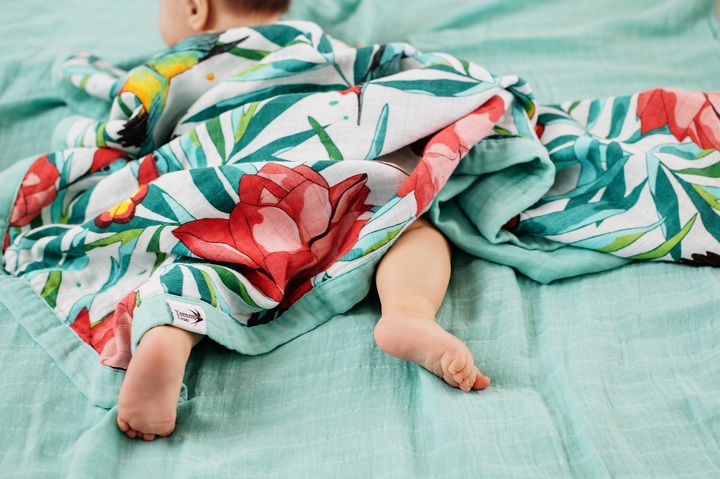
So you plan to develop online commerce only?
-"Not exactly. We will develop online and B2B sales through distributors. We want to have distributors in different countries. Besides the Czech Republic, we now have distributors in the Baltic States and the Middle East. In Russia and Central Asia we sell online.
Forbes.kz